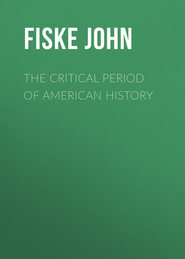По всем вопросам обращайтесь на: info@litportal.ru
(©) 2003-2024.
✖
Tobacco and Alcohol
Настройки чтения
Размер шрифта
Высота строк
Поля
Jeumont: Du Tabac, de son Usage, de ses Effets, etc. Paris, 1857.
Lizars: On the Use and Abuse of Tobacco. London, 1857.
Steinmetz: Tobacco. London, 1857.
Alexandre: Contre l'abus du Tabac. Amiens, 1857.
Fermond: Monographie du Tabac. Paris, 1857.
Koller: Der Tabac. Augsburg, 1858.
Prescott: Tobacco and its Adulterations. London, 1858.
Schmid: Der Tabak als wichtige Culturpflanze. Weimar, 1858.
Demoor: Du Tabac. Brussels, 1858.
Mourgues: Traité de la Culture du Tabac. Paris, 1859.
Morand: Essai sur l'Hygiène du Tabac. Epinal, 1859.
Fairholt: Tobacco, its History and Associations. London, 1859.
Cheever: On Tobacco. Atlantic Monthly, August, 1860.
notes
1
Smoking and Drinking. By James Parton. Boston, Ticknor & Fields, 1868. 12mo, pp. 151.
2
When we first read this remark, we took it for a mere burst of impassioned rhetoric; but on second thoughts, it appears to have a meaning. Another knight-errant in physiology charges tobacco with producing "giddiness, sickness, vomiting, vitiated taste of the mouth, loose bowels, diseased liver, congestion of the brain, apoplexy, palsy, mania, loss of memory, amaurosis, deafness, nervousness, emasculation, and cowardice." Lizars, On Tobacco, p. 29. A goodly array of bugbears, quite aptly illustrating the remark of one of our medical professors, that hygienic reformers, in the length of their lists of imaginary diseases, are excelled only by the itinerant charlatans who vend panaceas. There is, however, no scientific foundation for the statement that tobacco "takes off the edge of virility." The reader who is interested in this question may consult Orfila, Toxicologie, tom. II. p. 527; Annales d'Hygiène, tom. XXXVIII.; and a Memoir by Laycock in the London Medical Gazette, 1846, tom. III.
3
"I am not acquainted with any well-ascertained ill effects resulting from the habitual practice of smoking." – Pereira, Materia Medica, vol. ii., p. 1431. Tobacco "is used in immense quantities over the whole world as an article of luxury, without any bad effect having ever been clearly traced to it." – Christison on Poisons, p. 730. These two short sentences, from such consummate masters of their science as Christison and Pereira, should far more than outweigh all the volumes of ignorant denunciation which have been written by crammers, smatterers, and puritanical reformers, from King James down.
4
Only a basis, however. The argument as applied to tobacco, though a necessary corollary from Dr. Anstie's doctrines, is in no sense Dr. Anstie's argument. We are ourselves solely responsible for it.
5
Sleep is caused by a diminution of blood in the cerebrum; stupor and delirium, as well as insomnia, or nocturnal wakefulness, are probably caused by excess of blood in the cerebrum. We feel sleepy after a heavy meal, because the stomach, intestines and liver appropriate blood which would ordinarily be sent to the brain. But after a drunken debauch, a man sinks in stupor because the brain is partially congested. The blood rushes to the paralyzed part, just as it rushes to an inflamed part; and in the paralysis, as in the inflammation, nutrition and the products of nutrition are lowered. The habitual drunkard lowers the quality of his nervous system, and impairs its sensitiveness, – hence the necessity of increasing the dose. It will be seen, therefore, that it is not the function of a narcotic, as such, to induce sleep, though in a vast number of cases it may induce stupor. The headache felt on awaking from stupor, is the index of impaired nutrition, quite the reverse of the vigor felt on arising from sleep.
6
Mr. Lizars (On Tobacco, p. 54) has the impudence to cite Pereira (vol. ii. p. 1426) as an opponent of smoking, because he calls nicotine a deadly poison! And on p. 58 he similarly misrepresents Johnston. This is the way in which popular writers contrive to marshal an array of scientific authorities on their side. In the case of tobacco, however, it is difficult to find physiologists who will justify the popular clamour. They have a way of taking the opposite view; and when Mr. Lizars cannot get rid of them in any other way, he insinuates that all writings in favour of tobacco "have been got up from more than questionable motives." (p. 137.) This is in the richest vein of what, for want of a better word, we have called radicalism; and may be compared with Mr. Parton's belief that physicians recommend alcoholic drinks because they like to fatten on human suffering! (Smoking and Drinking, p. 56.)
7
Clendon, On the Causes of the Evils of Infant Dentition.
8
Curling, On Tetanus, p. 168; Earle, in Med. Chir. Trans., vol. vi., p. 92; and O'Beirne, in Dublin Hospital Reports, vols. i. and ii.
9
Wood, U. S. Dispensatory.
10
Sigmond, in Lancet, vol. ii., p. 253.
11
Currie, Med. Rep., vol. i., p. 163.
12
Indeed, there are many fatal cases in which tubercles never appear. See Niemeyer on Pulmonary Phthïsis.
13
Stimulants and Narcotics, p. 144.
14
Stimulants and Narcotics, p. 148.
15
Id. p. 224.
16
"The origin of the belief that stimulation is necessarily followed by a depressive recoil is obviously to be found in the old vitalistic ideas. It is our old acquaintance, the Archæus, whose exhaustion, after his violent efforts in resentment of the goadings which he has endured, is represented in modern phraseology by the term 'depressive reaction.' This idea once being firmly established in the medical mind, the change from professed vitalism to dynamical explanations of physiology has not materially shaken its hold." Id. p. 146. An interesting example of the way in which quite obsolete and forgotten theories will continue clandestinely to influence men's conclusions. The subject is well treated by Lemoine, Le Vitalisme et l'Animisme de Stahl. Paris, 1864.
17
"From good wine, in moderate quantities, there is no reaction whatever." – Brinton, Treatise on Food and Digestion.
18
"It is a positive fact that the gastric secretion can at any time be produced by simply stimulating the salivary glands with tobacco." – Lewes, Physiology of Common Life, vol. i. p. 192. The gastric secretion is also stimulated by the action of tobacco on the pneumogastric or eighth pair of nerves.











